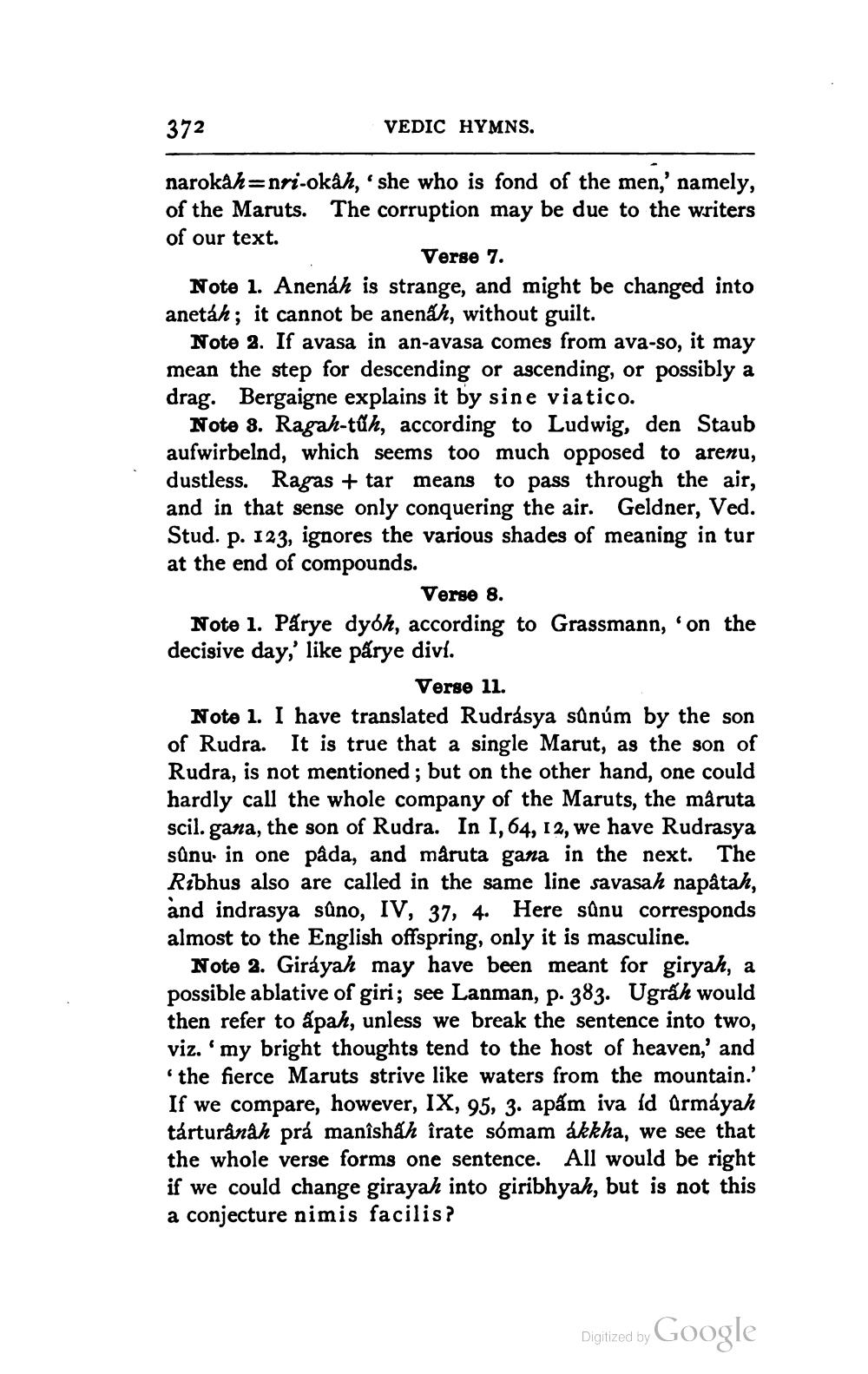________________
372
VEDIC HYMNS.
narokah=nri-okåh, she who is fond of the men,' namely, of the Maruts. The corruption may be due to the writers of our text.
Verse 7. Note 1. Anenáh is strange, and might be changed into anetáh; it cannot be anenáh, without guilt.
Note 2. If avasa in an-avasa comes from ava-so, it may mean the step for descending or ascending, or possibly a drag. Bergaigne explains it by sine viatico.
Note 3. Ragah-tuh, according to Ludwig, den Staub aufwirbelnd, which seems too much opposed to arenu, dustless. Ragas + tar means to pass through the air, and in that sense only conquering the air. Geldner, Ved. Stud. p. 123, ignores the various shades of meaning in tur at the end of compounds.
Verse 8. Note 1. Párye dybh, according to Grassmann, 'on the decisive day,' like párye divi.
Verse 11. Note 1. I have translated Rudrásya sunúm by the son of Rudra. It is true that a single Marut, as the son of Rudra, is not mentioned; but on the other hand, one could hardly call the whole company of the Maruts, the maruta scil. gana, the son of Rudra. In I, 64, 12, we have Rudrasya sûnu. in one pâda, and måruta gana in the next. The Ribhus also are called in the same line savasah napätah, and indrasya sûno, IV, 37, 4. Here sûnu corresponds almost to the English offspring, only it is masculine.
Note 2. Giráyah may have been meant for giryah, a possible ablative of giri; see Lanman, p. 383. Ugráh would then refer to ápah, unless we break the sentence into two, viz. 'my bright thoughts tend to the host of heaven,' and 'the fierce Maruts strive like waters from the mountain. If we compare, however, IX, 95, 3. apám iva id armáyah tárturanah prá manîshah îrate somam ákkha, we see that the whole verse forms one sentence. All would be right if we could change girayah into giribhyah, but is not this a conjecture nimis facilis?
Digitized by
Digized by Google




